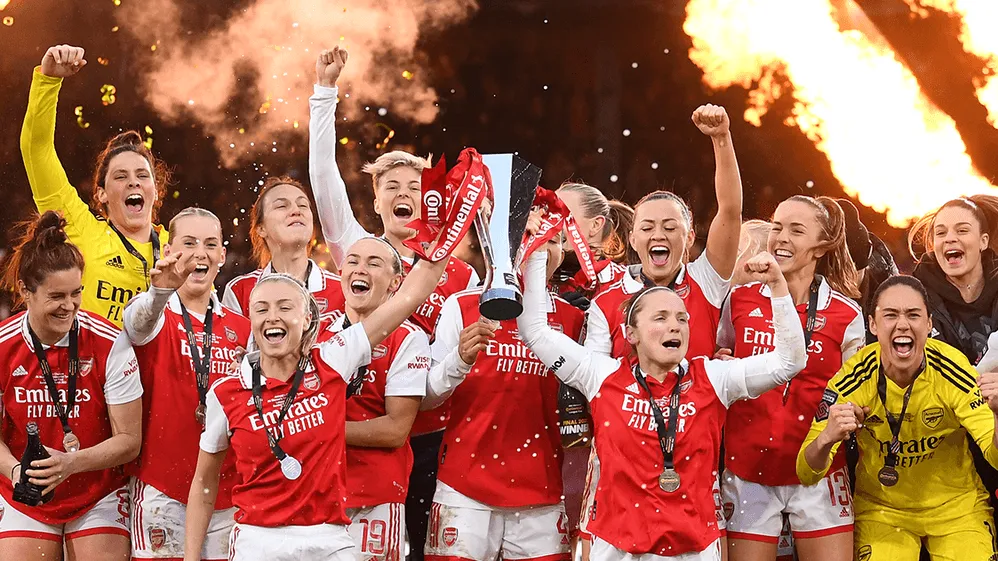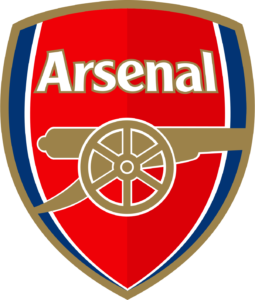Arsenal: A Football Club Steeped in History
Arsenal is one of the world’s most famous and successful football clubs. Founded in 1886, the club has grown into a global brand, known for its attacking style of play, iconic players, and passionate fanbase. Over the decades, it has built a reputation for excellence, both on and off the field, with a trophy cabinet that includes multiple Premier League titles, FA Cups, and European honours. This article will explore the club’s history, key moments, iconic players, and current state under manager Mikel Arteta.
Early History of Arsenal
The origins of Arsenal trace back to a group of workers from the Woolwich Arsenal Armament Factory, who founded the club as “Dial Square” in 1886. Shortly after, the club changed its name to Arsenal and joined the Football League in 1893. Initially based in South London, Arsenal moved to North London in 1913, establishing their home at the iconic Highbury Stadium.
In 1925, Arsenal made a pivotal decision by appointing Herbert Chapman as their manager. Chapman’s innovative tactics and forward-thinking ideas transformed the club. Under his leadership, Arsenal won their first major trophy, the FA Cup, in 1930, followed by league titles in 1931 and 1933. Chapman’s legacy still influences modern football and is regarded as one of the greatest managers in English football history.
The Golden Era
The post-war period marked the beginning of Arsenal’s golden era. In the 1970-71 season, it achieved an incredible feat by winning both the Premier League and the FA Cup, securing the first-ever double in the club’s history. This historic season was led by manager Bertie Mee, who built a solid, disciplined team that could compete with the best.
During the 1980s and 1990s, Arsenal continued to build on their success. One of the club’s greatest moments came in 1989 when they dramatically won the First Division title. On the final day of the season, it needed to win by two clear goals against Liverpool at Anfield. In the dying seconds of the match, Michael Thomas scored a famous goal, securing the league title for Arsenal.
The Wenger Revolution
In 1996, Arsenal made a bold decision by appointing Arsène Wenger as manager. Wenger, a relatively unknown Frenchman at the time, transformed the club with his revolutionary ideas on nutrition, fitness, and tactics. His impact was immediate, as Arsenal won the Premier League and FA Cup double in his first full season in charge.
Wenger’s Arsenal played an attractive, free-flowing style of football, which won them many admirers. The club’s most significant achievement under Wenger came in the 2003-04 season when Arsenal went unbeaten throughout the entire Premier League campaign, earning the nickname “The Invincibles.” This remarkable feat had not been achieved since Preston North End in 1889, and it cemented Wenger’s legacy as one of the greatest managers in football history.
During his 22-year tenure, Wenger led Arsenal to three Premier League titles, seven FA Cups, and a Champions League final appearance in 2006. Although Arsenal fell short of European glory, Wenger’s influence on English football and the club’s global reputation cannot be overstated.
Key Players in Arsenal’s History
Throughout its illustrious history, Arsenal has been home to some of the greatest footballers of all time. Players like Thierry Henry, Dennis Bergkamp, and Patrick Vieira are regarded as legends not only at the club but in world football.
- Thierry Henry: Widely considered Arsenal’s greatest player, Henry is the club’s all-time leading goal scorer. Known for his speed, skill, and finishing, Henry played a pivotal role in Arsenal’s success during the early 2000s. His goals helped the club win two Premier League titles and two FA Cups.
- Dennis Bergkamp: Bergkamp’s creativity and vision were instrumental in Arsenal’s attacking play under Wenger. His technical ability, intelligence, and composure on the ball made him one of the Premier League’s most feared forwards.
- Patrick Vieira: A dominant force in midfield, Vieira captained Arsenal during their Invincibles season. His leadership, physical presence, and ability to control games made him one of the best midfielders of his generation.
Other notable players include Tony Adams, who captained Arsenal to numerous titles in the 1990s, and Cesc Fàbregas, who represented the future of the club after Wenger’s early successes.
Recent Years and the Arteta Era
After Wenger’s departure in 2018, Arsenal went through a period of transition. Unai Emery replaced Wenger but was unable to achieve the same level of success. In December 2019, Arsenal appointed former player Mikel Arteta as head coach. Arteta, who had worked as an assistant to Pep Guardiola at Manchester City, brought fresh ideas and a new approach to the team.
Under Arteta, Arsenal won the FA Cup in 2020, defeating Chelsea in the final. This victory gave fans hope that the club was on the right path under the new manager. Arteta emphasized a more disciplined, structured style of play, focusing on building a solid defence and controlling possession.
Although Arsenal has experienced ups and downs in recent seasons, Arteta’s vision for the club is starting to take shape. Young talents like Bukayo Saka and Emile Smith Rowe have emerged as key players, while experienced signings like Thomas Partey and Gabriel Jesus have bolstered the squad. Arsenal is now pushing for a return to the top four and a place in the Champions League.
Challenges and Aspirations
Despite Arsenal’s rich history and passionate fanbase, the club faces several challenges in modern football. The financial power of clubs like Manchester City and Chelsea, combined with the rise of Liverpool under Jürgen Klopp, has made it difficult for Arsenal to compete for major trophies consistently.
However, the club’s focus on developing young players and smart recruitment under Arteta provides hope for the future. Arsenal’s supporters remain optimistic that the club can once again challenge for the Premier League title and return to Europe’s elite competitions.
Conclusion
Arsenal is more than just a football club; it’s a symbol of tradition, excellence, and resilience. From the early days of Herbert Chapman to the revolutionary era under Arsène Wenger, Arsenal has consistently been at the forefront of English football. The club’s commitment to playing attractive football, developing young talent, and maintaining its core values ensures that Arsenal will remain a force in the football world for years to come.
As Mikel Arteta continues to build his team and implement his vision, the future looks bright for Arsenal. Fans can look forward to more memorable moments, iconic players, and perhaps even a return to the top of English football.



[…] for a top-four spot in the Premier League, the stakes are incredibly high. The Tottenham vs Arsenal F.C. lineups will be crucial in determining the flow and outcome of the game, and fans will be […]
[…] As the NFL continues to evolve, these dynamics will remain a focal point. Their contrasting styles and careers offer valuable insights into the development of the quarterback position. The story of their matchups reflects the ongoing progression and excitement of the sport. […]
[…] Clemson football has won multiple ACC championships and made regular appearances in the College Football Playoff (CFP). Most notably, the Tigers captured two national championships during his […]